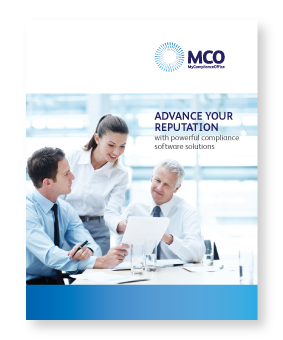Your Questions Answered with the Former SEC Examiners
MyComplianceOffice presents our co-hosts from NorthPoint Compliance as they answer follow up questions from Compliance Officers on Best Practices for a SEC Examination during the Q & A session of our August Webinar.
Victoria Hogan, CFA, President, worked for over six years as a compliance examiner in the New York Regional Office of the U.S. Securities and Exchange Commission. Victoria also spent two years as a compliance officer at Fortress Investment Group. Victoria graduated magna cum laude from The College of New Jersey.
Colleen Montemaraon is a consultant at NorthPoint. Prior to joining NorthPoint, Colleen worked for more than six years as a compliance examiner in the New York Regional Office of the US Securities and and Exchange Commission.Colleen graduated magna cum laude from St. Thomas Aquinas College with a BS in Finance.
You can download a full copy of the slides from this webinar.
Full video transcript available below:
|
We have some interesting questions and we appreciate everyone's participation. If we don't get to your questions to day, someone will reach out to you individually or please feel free to contact us. |
|||||||||||||||||||||||||||||||||||||||
|
Looking at the first question here, a question that I like, it says, are the SEC employees incentvize to find things to refer to enforcement? |
|||||||||||||||||||||||||||||||||||||||
|
I could take this one and tell you that myself as an examiner, SEC examiners are not against you, but they also take their job very seriously. I know that when I was at the SEC it was my charge to protect the investors, and so I didn't want to miss anything. That's an incentive alone. Also remember too, during an examination, if I didn't find anything at the firm, I had now have to answer to my supervisor who might say "what were you doing the whole time during the onsite portion of the exam? Are you shopping or were you really there?" There is an incentive too if you find deficiencies if they're there. I mean you can't create a deficiency, but if it's there you want to find it.
|


